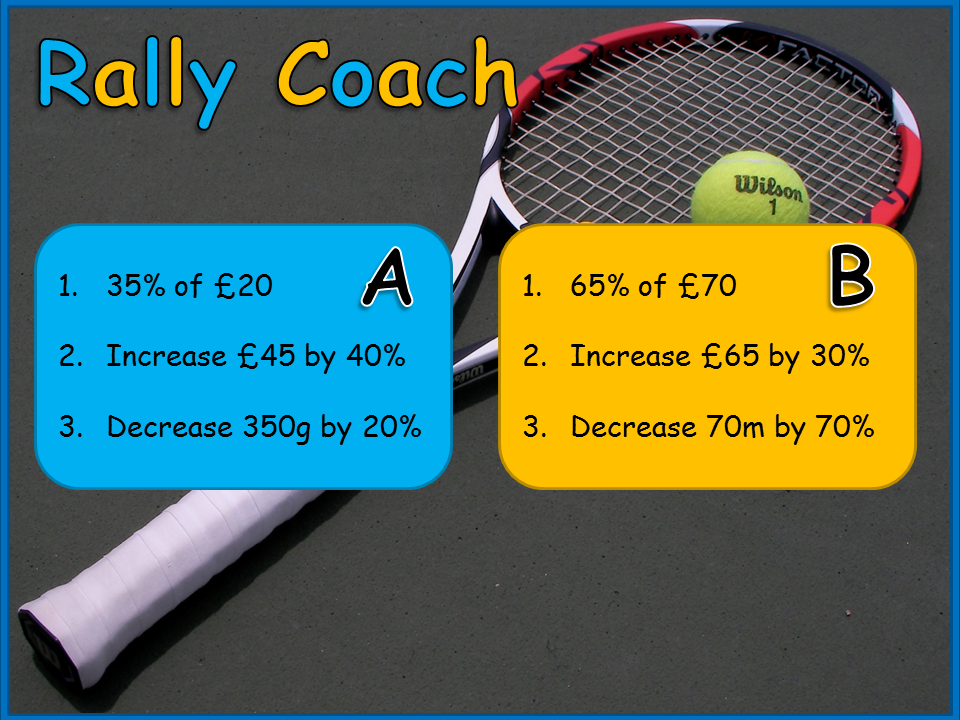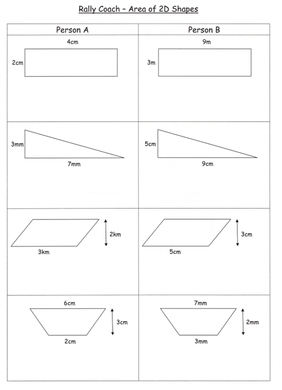| During my NQT year, I worked at a school that was big on cooperative learning and using Kagan structures. I confess, I was never a huge fan - all the jazzy names got a bit complicated and all seemed to have the words "Round" or "Robin" in them. Interestingly, that fad seems to have fallen by the wayside now - I've not heard anyone talk about it for a while, in UK schools at least. However...I love Rally Coach. I've not touched many of the other cooperative learning strategies for a good few years, but I still use this one. It's a fantastic way to jazz up those "do 10 questions to remind you about last lesson" starters. Students work in pairs. They choose who is A and who is B, and are given a set of problems to do. For any pesky groups of 3, two As and one B works fine. |
| Student A tackles their first problem, while B watches and either praises if the question is done correctly or coaches if A gets stuck. Once A has done their first problem, students switch roles and B does their first question while A praises/coaches as necessary. Students continue to alternate in this way through the problems until they have finished. Depending on how organised I am, I either put the problems on the board, or create a worksheet. I much prefer the latter as it has two major benefits:
|


 RSS Feed
RSS Feed
